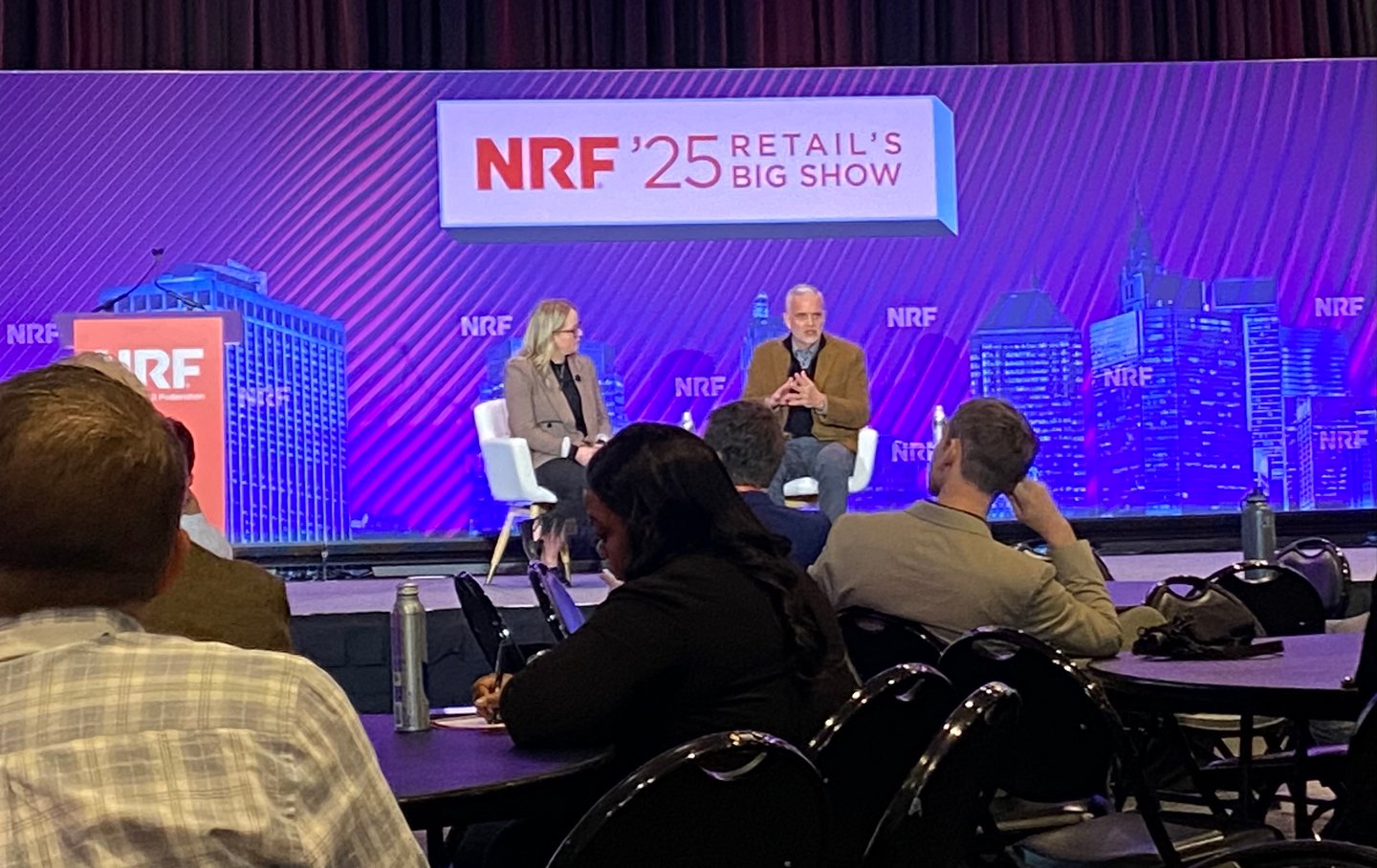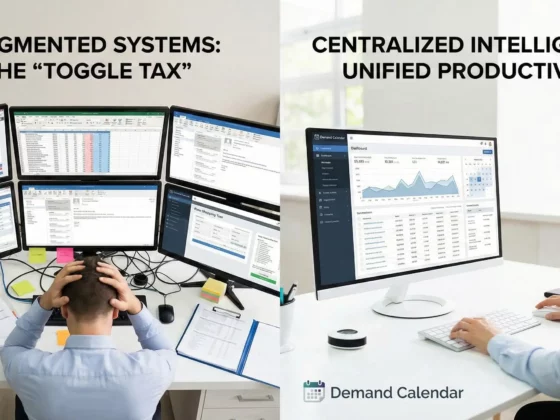
Lauren Kennedy, VP, Customer Success at Upshop, and Derek Hannum, Chief Customer Officer at ReposiTrak, discuss food safety tech at NRF 2025.
Food safety is taking center stage in the restaurant and food retail industry as high-profile outbreaks of contaminated foods grab headlines and the deadline for compliance with FSMA 204 (Section 204d of the Food Safety Modernization Act) approaches. Starting in January 2026, companies handling high-risk foods—such as seafood, cheeses, and fresh produce—will be required to record Critical Tracking Events (CTEs) to help the FDA quickly identify and recall contaminated food.
At the National Retail Federation’s annual Big Show, in NYC, industry leaders Lauren Kennedy, VP of Customer Success at the leading store operations tech company Upshop, and Derek Hannum, Chief Customer Officer at the food traceability network ReposiTrak, presented an engaging educational session on NRF’s Foodservice Innovation Zone Tech Stage, sharing insights on the benefits of adopting digitally integrated supply chains to not only meet FSMA 204 requirements but also improve operations and profitability.
How Technology Enhances Food Safety
Kennedy and Hannum offered details about the ReposiTrak-Upshop partnership that provide critical takeaways for retail, convenience, and restaurant professionals.
“The FDA is recalling more than 100 million units of food each quarter. We can’t continue at this rate,” noted Kennedy. For context, supporting how important FSMA 204 will be, she cited specific examples, such as a recent peanut recall, that have cascading effects along the supply chain and at the bottom line. Hannum added, “It’s very difficult during cases of foodborne illness and outbreaks to try to identify the source of the contamination, which is often at the point of harvest, packing, or manufacturing. Think about a product like the peanut and how many different products it goes into.”
The speakers outlined how the ReposiTrak-Upshop partnership streamlines traceability for shipments of high-risk food items from source to store; provides enhanced visibility into supply chain data to reduce waste, optimize inventory, and improve labor management; and offers operators a seamless solution that integrates into existing systems without disrupting processes at the retail or supplier level.
Key FSMA 204 Takeaways for Restaurants
Here are some action items for foodservice operators pursuing FSMA 204 compliance and the safety and operational benefits it can provide:
Prepare for FSMA 204 Now: Implement integrated traceability systems that connect supply chain and in-store data and ensure the ability to track Key Data Elements (KDEs) for high-risk food items.
Audit Your Supply Chain: Evaluate your suppliers’ traceability capabilities to ensure they can provide complete and accurate shipment data.
Stay Ahead of the Competition: Restaurant brands that adopt traceability solutions early can demonstrate leadership in food safety and build customer trust.
Plan for Scalability: Choose technology solutions that can grow with your business, integrating with current systems and accommodating future needs as traceability requirements evolve.







